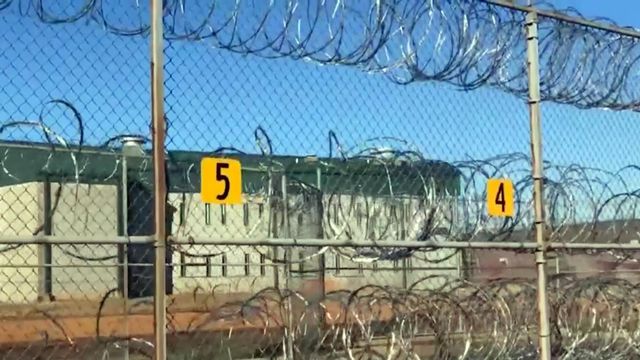DPS lukewarm to idea of using National Guard for prison security
A proposal by a coastal lawmaker to use the North Carolina National Guard to bolster prison security is receiving a lukewarm response from state prison leaders.
Posted — UpdatedFacing similar prison staffing shortages last December, West Virginia Gov. Jim Justice declared a state of emergency and issued an executive order allowing the temporary use of National Guard troops to support prison security.
Steinburg said Tuesday that North Carolina should do the same, using Guardsmen for some time-consuming duties outside the prisons.
"If we could use the National Guard to secure the perimeters of the prison, that would be one thing they could do," he said. "We can use the National Guard to help transfer prisoners or for taking them to the hospital or taking them to a clinic. That frees up correctional officers to be on the floor."
Moving additional trained corrections officers onto prison floors would reduce assaults by inmates on guards, which in turn would improve recruiting, Steinburg said.
"Every time there’s an incident, you know it’s got to have a significant impact on recruiting," he said.
Deputy Secretary of Adult Corrections Reuben Young said such a move isn't as easy as it sounds. Anyone who has any contact with inmates has to go through training, which would take time, he said.
The National Guard also has other duties, including overseas operations, Young said.
While all options, including Guardsmen, are on the table to make corrections officers safer, state officials are talking first to local law enforcement in prison communities to see if they can help, he said.
"We're looking at outside agencies giving some assistance, whether we can get the sheriff's departments to help us on the perimeters in terms of issues with regard to people throwing contraband over [fences]," Young said.
The State Employees Association of North Carolina also was skeptical of Steinburg's proposal.
"We applaud the fact that concerned lawmakers are looking for innovative methods to improve safety, but calling in the National Guard is not a long-term solution to the problems at our prisons," SEANC Executive Director Robert Broome said in a statement. "The only workable option is for the General Assembly to immediately allocate enough money to pay competitive salaries so we can fill positions and solve the crisis of understaffing. If we don't do this, the chance is higher than not that more officers will be murdered on the job."
Young said pay is part of the problem with staffing, but it's not the main part.
"The primary focus here is safety and security," he said. "If you pay an employee whatever amount of money you pay them, if they are not working in a safe and secure environment, I'm not really sure how important the pay is."
Steinburg said he was impressed with training for new corrections officers he observed Monday in Tyrrell County.
"There’s help on the way, but as you know, we’re losing them faster than we can bring them in. That makes it very, very challenging," he said.
"Even the inmates are concerned about the safety of the correctional officers. You wouldn’t think that," he said. "When that door locks, for 12-and-a-half hours, these corrections officers are locked in just like the inmates, and they’ve got a target on their back all the while they’re there."
Related Topics
• Credits
Copyright 2024 by Capitol Broadcasting Company. All rights reserved. This material may not be published, broadcast, rewritten or redistributed.






